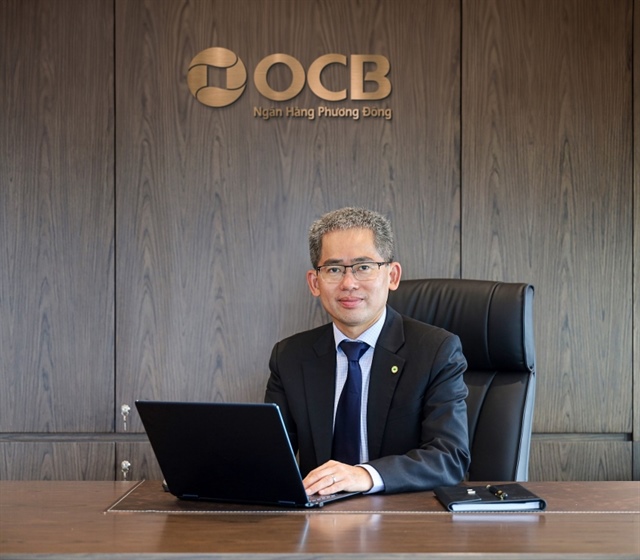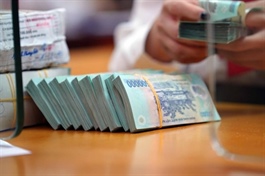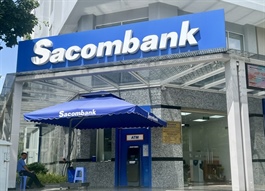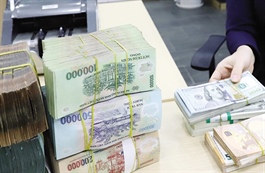From local bank leader to international executive
From local bank leader to international executive
Pham Hong Hai, CEO of OCB, spoke to VIR’s Hong Dung about the difficulties those in banking face in making the right decisions.
You were the first Vietnamese to be appointed as general director of a 100 per cent foreign-capital bank in Vietnam, HSBC, in 2014. You broke new ground again as director of HSBC’s international business division in Canada in 2019. How do you reflect on stepping out of your comfort zone and leaving Vietnam?
When I moved to Canada, many colleagues questioned why I would leave a prominent position in Vietnam, especially as the country was thriving regionally, to start over in a new market.
After 24 years at HSBC Vietnam, I sought the chance to work internationally, test my adaptability, and gain valuable experience I was missing. Leading HSBC Vietnam for nearly five years, I also felt the need for a fresh challenge to grow further.
Though I always planned to return to Vietnam, my homeland, I wanted to contribute meaningfully to its rapidly evolving financial market, particularly in areas like payments and financial solutions, while fostering sustainable development.

Pham Hong Hai, CEO of OCB. Photo: OCB |
What are the positive and less positive aspects of this Vietnam's approach to international standards?
In areas like digital payment solutions and trade finance, Vietnam has surpassed Canada by taking significant leaps instead of gradual steps. Additionally, Vietnam’s financial market is highly open, resulting in fiercer competition compared to Canada. The strong determination and ambition of Vietnamese workers also stand out as a significant advantage that we should preserve.
Conversely, Canada’s financial market benefits from its close ties with the US, enabling frequent large-scale and complex capital-raising activities with active participation from investment funds and insurance companies. This highlights the importance of developing Vietnam’s capital market to reduce the economy’s reliance on the banking system for medium- and long-term financing.
We must establish a clear final goal to guide every decision. The State Bank of Vietnam and the banking sector understand the importance of adopting international standards to achieve transparency, safety, and sustainable development.
The global financial market, shaped by centuries of evolution and crises, has provided valuable lessons embedded in these standards, which Vietnam can leverage to avoid similar pitfalls.
However, Vietnam's banking system is uneven, making the immediate application of high international standards challenging for many institutions. A well-defined roadmap for gradually elevating these standards is essential. Institutions unable to keep pace should be prepared to merge with stronger entities to ensure progress.
Foreign banks and investors are gradually withdrawing from Vietnamese banks. Does this mean local banks are taking control of the market?
There have been several waves of foreign investment into Vietnamese banks. The first wave came from global banks with ambitions to expand their international networks and accelerate growth by purchasing shares in local banks.
Most of these deals failed due to the vastly different goals of the two sides. Their aim when acquiring shares was to become a major shareholder and have significant influence over the bank’s strategy.
However, in practice, with a maximum ownership of 15 per cent, foreign banks had limited impact on the bank's development strategy. Especially with the implementation of Basel III, small shareholdings will not be counted as capital when consolidated into the parent bank.
The second wave, more recently, led by Asia-Pacific banks. This time, foreign investors had a more realistic goal. Instead of seeking controlling stakes, they sought cooperation opportunities rather than attempting to change the strategy of local banks. They engage as investors, offering technical support, human resources, and management expertise when needed by the local bank.
The role of foreign banks in Vietnam has also changed significantly. 10 years ago, they had a significant advantage in technology, risk management, and product solutions compared to local banks.
Now, many local banks have surpassed them in technology, products, speed of change, and their aggressive investment in people. In the retail market, foreign banks have completely fallen behind, though they still play a crucial role in connecting Vietnam to the world by serving foreign companies in the country, assisting Vietnamese companies in expanding abroad, or helping raise capital in international markets.
Local banks were growing rapidly and needed skilled talent. Did you ever consider joining one?
From the beginning of my career with a foreign organisation, I envisioned joining a local bank to challenge myself and contribute to Vietnam's banking system. Timing and the right choice of organisation, however, are crucial. Entering too early, when the system isn't ready for change, makes implementing strategies difficult.
Now, as a leader at OCB, a mid-sized bank with a strong foundation, I see its remarkable progress over the past decade. The team’s passion and shared vision to position OCB among Vietnam’s top five most efficient private banks drive us forward.
With strategic investments in technology, risk management, and a robust client portfolio, OCB is well-placed to expand in the retail and SME sectors, serving partner ecosystems and targeted customers. I am confident that these goals are within reach.
As the CEO of a foreign bank operating under international regulations and standards, is it easier compared to working for local banks?
Working at a local bank is significantly more complex than at a foreign bank. Foreign banks strictly follow international standards, declining clients who fail to meet them.
In contrast, local banks often work with clients who are upgrading their operational standards, requiring support during this transitional phase to avoid substantial challenges.
I believe that a clear commitment to achieving international standards is key to success. In banking, distinguishing right from wrong can be challenging, but with clarity and focus, goals become attainable. I encourage my team to address problems openly and collaboratively, as ignoring them only complicates matters. With a strong foundation, OCB and local banks are well-positioned for sustainable growth, supporting the aspirations of consumers, entrepreneurs, and businesses across Vietnam.

























